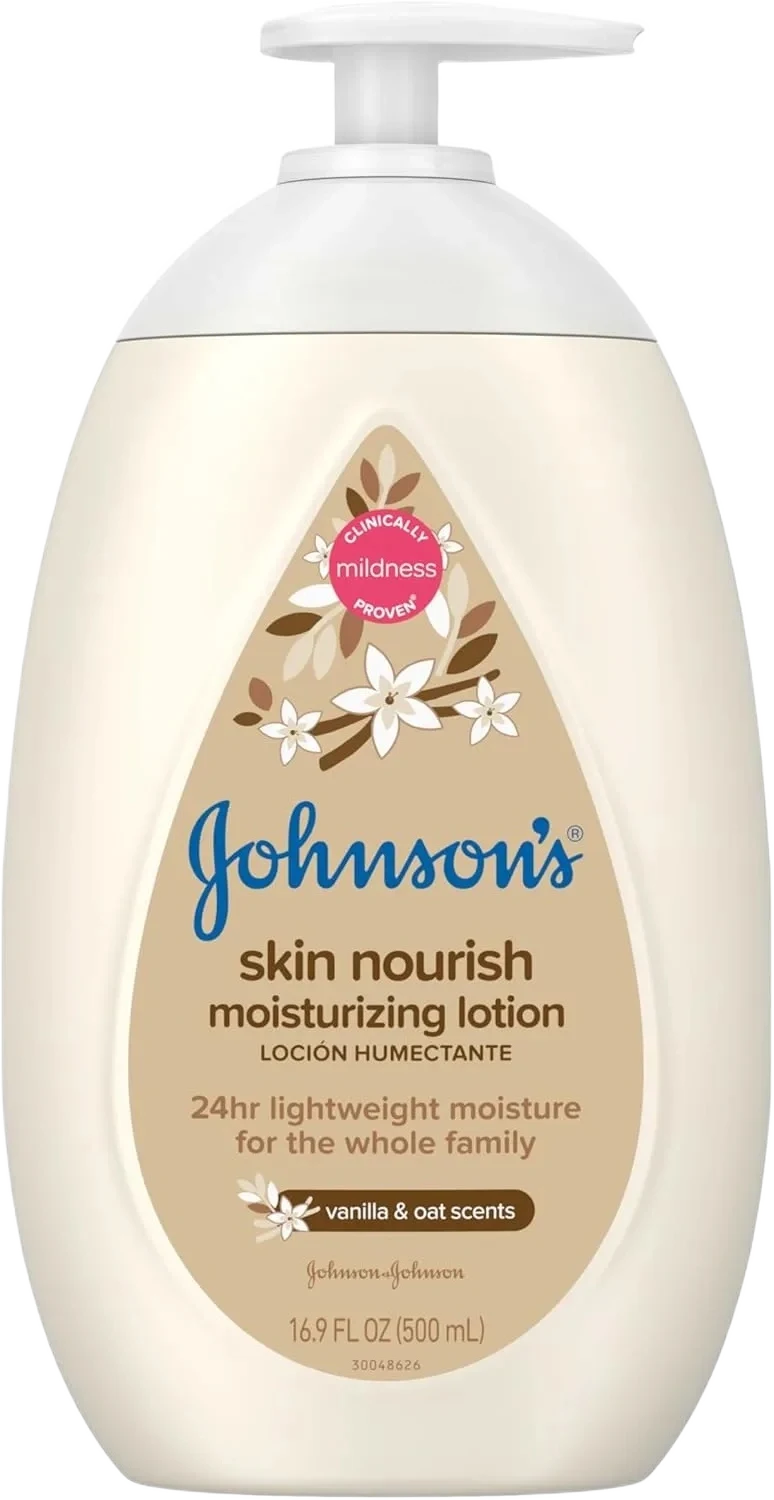Johnson's skin nourish moisturizing lotion
lotion • For adults • Skin contact 🧴
Product Images
Product Photo

Tap to enlarge
Ingredient List

Tap to enlarge
Is this safe for adults to use Johnson's skin nourish moisturizing lotion?
Check for Different Age (6 available)
Ingredients Analysis (15 found)






Common Questions About Johnson's skin nourish moisturizing lotion
Adult-safe? Johnson's skin nourish moisturizing lotion
Yes, Johnson's skin nourish moisturizing lotion is generally considered safe for adults based on ingredient analysis.
What ingredients should I watch out for?
We analyzed 15 ingredients in Johnson's skin nourish moisturizing lotion. 15 safe. Check the detailed analysis above for specific concerns.
When can adults using lotion?
The appropriate age depends on the specific ingredients. This analysis is for adults. Use the age selector above to check other ages.
⚠️ Important Disclaimers
Product Recognition: Product names are identified programatically and may be incorrect. Always verify product identity yourself.
Safety Analysis: Evaluations are for research only - consult pediatricians for medical decisions. Do not rely solely on this analysis.
No Guarantees: Results may be incomplete or inaccurate. Do not rely solely on this analysis.